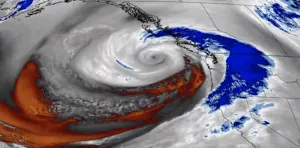
Record-setting summer locks in 2023 as the next hottest year on record
Even with only two-thirds of the year over, scientists are already quite certain we're living through the new hottest year since the start of the Industrial Revolution.
After three months of record global temperatures, 2023 is solidly on course to become the next hottest year.
NASA, NOAA, the Japanese Meteorological Agency, the EU's Copernicus Climate Change Service, and Berkeley Earth have all weighed-in on August 2023, naming it — by far — the hottest month of August recorded since the mid-1800s.
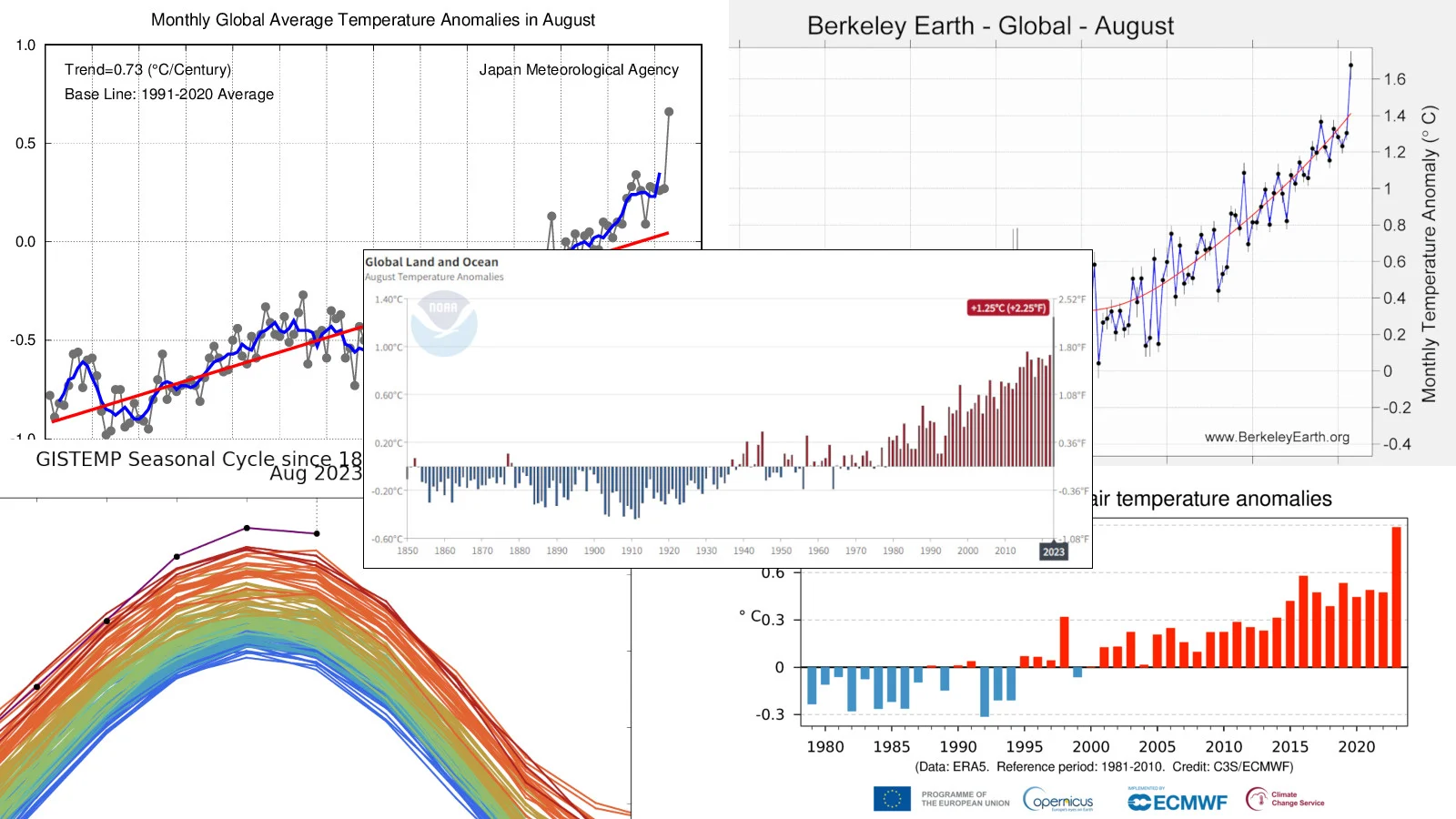
Various temperature anomaly graphs are presented here in a collage to highlight how all these diverse agencies agree on just how much hotter August 2023 was compared to every other month of August going back from decades to well over a century and a half. (NOAA (centre)/JMA (top left)/Berkeley Earth (top right)/Copernicus (bottom right)/NASA (bottom left)/collage by author)
Based on NOAA's records, last month was 1.25°C above the 20th-century average of 15.6°C. In comparison, NASA logged it as 1.2°C warmer than the 30-year average from 1951 to 1980 (a reasonable substitute for the 20th century's global temperature patterns). According to Copernicus and the JMA, August was more than 0.6°C above the average recorded from 1991-2020 (a period which includes most of the warmest years on record so far).
Comparing the month to the preindustrial period, Berkeley Earth found that the global mean temperature in August 2023 was 1.68°C above the 1850 to 1900 average.
Summer 2023 breaks previous records
Not only was last month the hottest August on record, but it also capped off the warmest summer on record.
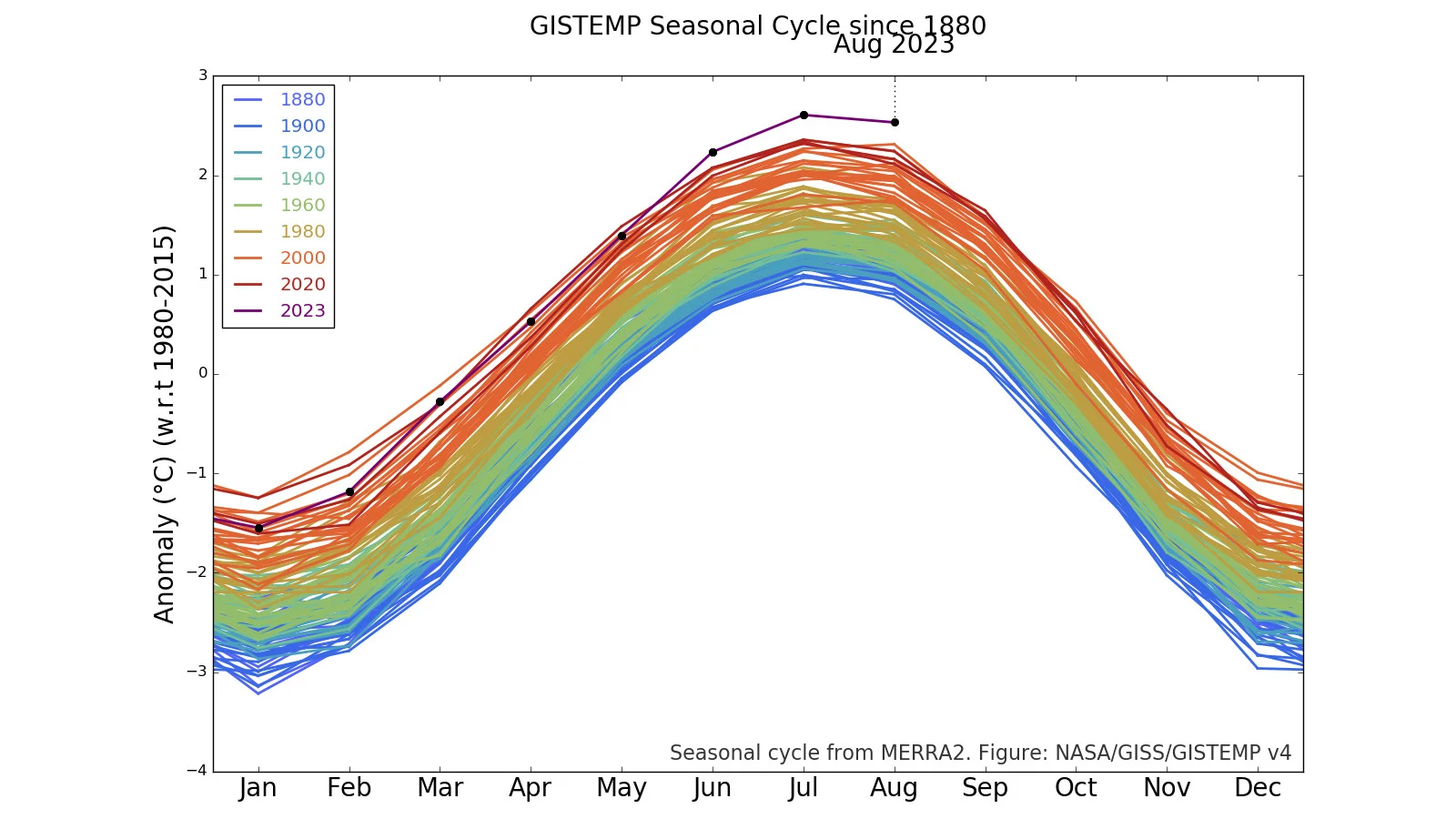
NASA's GISTEMP Seasonal Cycle graph shows monthly average temperatures from the globe compared to their average from 1980-2015. June, July, and August of 2023 (this year's 'meteorological summer') are significantly warmer than in any year going back to 1880. (NASA GISS)
"Exceptionally high sea surface temperatures, fueled in part by the return of El Niño, were largely responsible for the summer's record warmth," Josh Willis, a climate scientist and oceanographer at NASA's Jet Propulsion Laboratory, said in a statement.
"With background warming and marine heat waves that have been creeping up on us for decades, this El Niño shot us over the hump for setting all kinds of records," Willis explained.
Hottest year on record
Last month ranked as the hottest August, it closed out the hottest meteorological summer, and it has now also put 2023 squarely on the path to become the next hottest year on record.
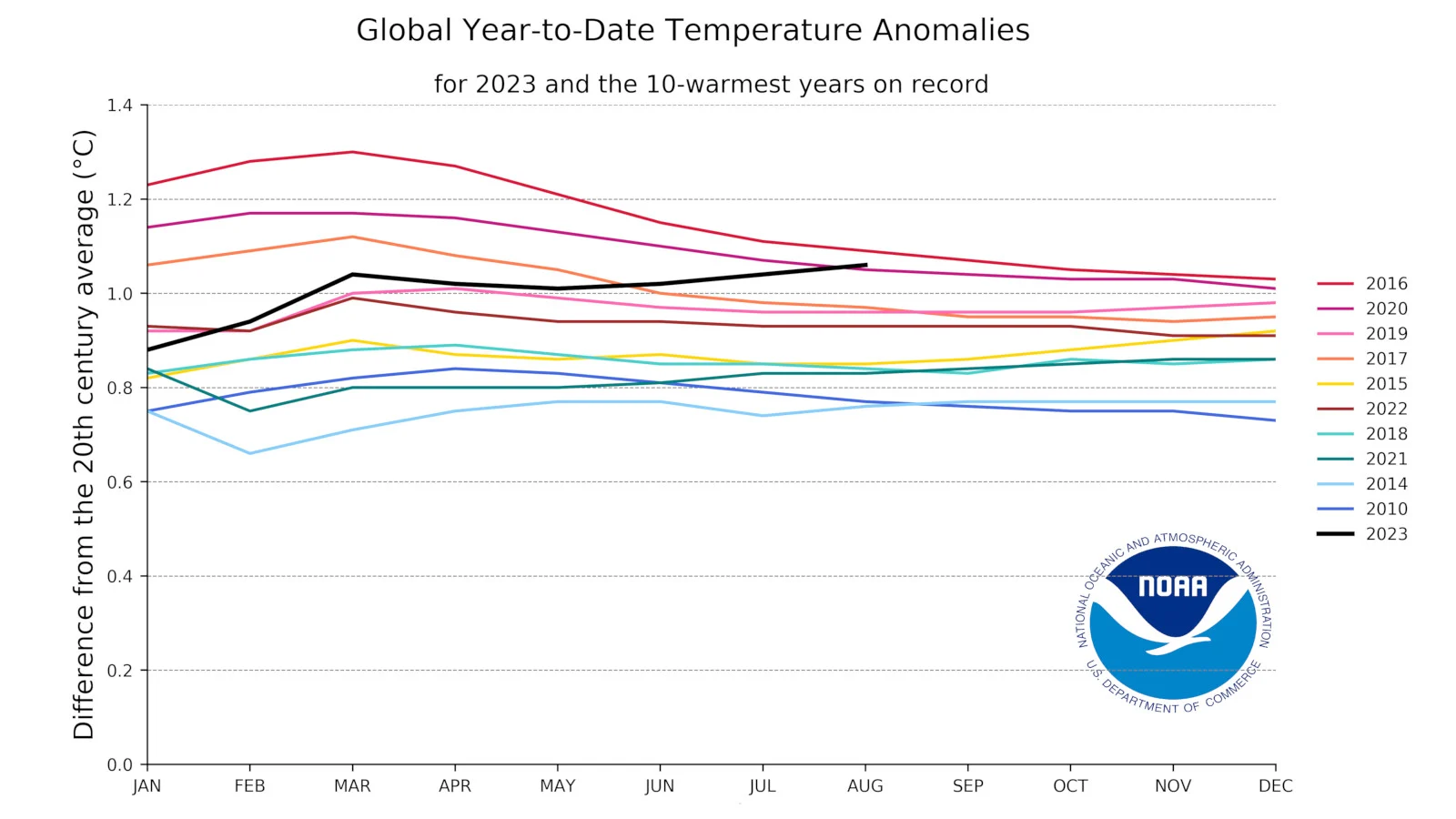
This "horse race" graph compares the year-to-date global temperature for each month from 2023 with the top 10 hottest years so far. While La Niña kept 2023 cooler to start, the strengthening El Niño combined with the impacts of greenhouse gas emissions has been driving temperatures up. (NOAA NCEI)
According to NOAA, 2023 now has a 93.42 per cent chance of becoming the warmest year on record by the end of December.
Building upon their own assessment from last month, Berkeley Earth is even more confident in that conclusion.
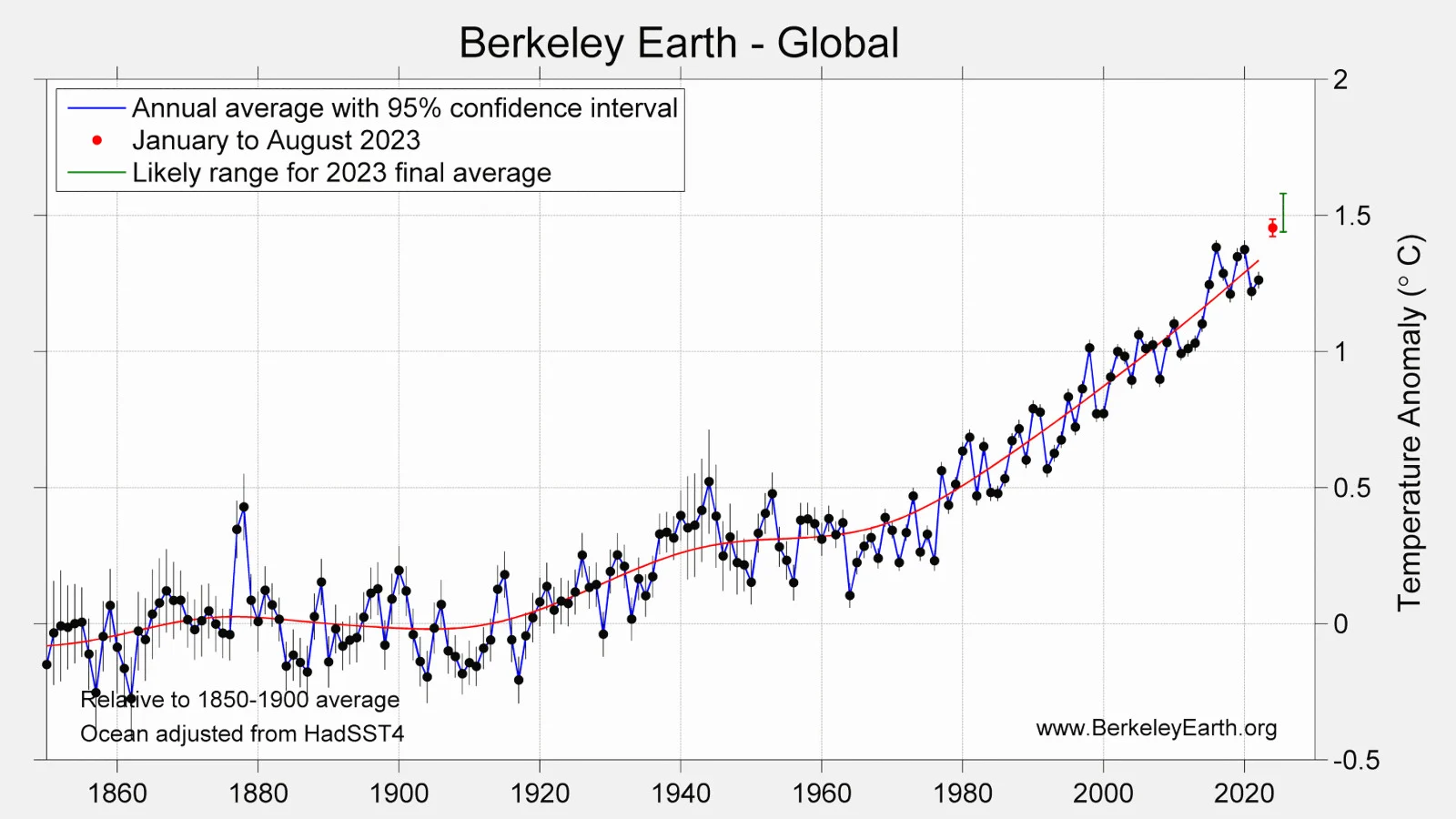
This plot of annual global temperatures (black dots connected by blue lines) from 1850-2022 includes the average for 2023 from January through August (red dot + error bar), and the statistical likelihood of the outcome of 2023 (green bar). The baseline for the anomalies plotted here is the average from 1850-1900. (Berkeley Earth)
"The surprisingly strong warming in June, July and August 2023, combined with the likelihood of a strong El Niño event, have increased the forecast for the rest of 2023," Robert Rohde, Berkeley Earth's lead scientist, wrote in his August update. "The statistical approach that we use, looking at conditions in recent months, now believes that 2023 is virtually certain to become the warmest year on record (>99% chance)."
Given that it took a record-strong El Niño to propel first 2015, and then 2016, into the top spot on the list of hottest years, 2023 beating all previous global temperature records with just a 'moderate' pattern shows just how much human activities have warmed the climate over the past 7 years.
Additionally, with all of the devastating extreme climate events we've seen so far this year, based on the typical pattern of global temperatures for El Niño years, next will be even hotter than 2023. This should be grounds for serious concern about how much worse climate impacts could get in 2024.
(Thumbnail courtesy NASA GISS)












